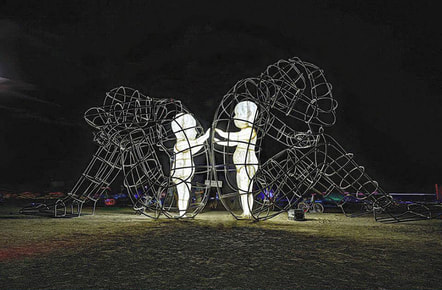|
Intimate relationships are inherently difficult. But why? One of the major influences on my grappling with this question, as a therapist and in my own marriage, has been Stan Tatkin's work. This short and entertaining Ted Talk below gives a brief introduction to some of Stan's ideas about how the challenges couples face are rooted in the way our brains and physiology are wired. If you'd like to learn more about Stan's work, I recommend these materials of his:
Wired For Love: How Understanding Your Partner's Brain and Attachment Style can Help Difuse Conflict and Build a Secure Relationship. (book) Your Brain On Love: The Neurobiology of Healthy Relationships (audio recording) And if you want to explore some of the ideas he presents in real time with your partner, please contact me. I'd be happy to talk more about my work with couples.
2 Comments
For most of us, being in a committed, intimate relationship is one of the hardest things we can do in life. Staying in a relationship, or tolerating it, is one thing—difficult and painful in its own way. And when it comes to the challenge of staying emotionally engaged and connected with another person over time, I would say you’re in for the ride of your life.
We can let go of so much unnecessary pain just by giving up the fantasy that other couples have it all together or don’t struggle. It’s a myth that we should be able to make our relationships work without help. Relationship is hard for everyone. The good news is, it is possible to get better at being in relationship. But getting better isn’t only about feeling better—it also asks us to grow. Growing is inherently and unavoidably uncomfortable. But growing doesn’t need to be as hard as it is when we’re alone and isolated from connection and support in the places where we feel uncertain or scared. For many people, admitting we need help feels like a sign of weakness, or even a cause for shame. Especially for men, who are socialized to display strength even when we’re feeling scared, insecure, hurt, or sad, saying “I need help” or “We need help” feels strange, risky, even forbidden. There’s still a dominant story-myth in our society that says strength is persevering alone and keeping your chin up and chest out in spite of feeling shaky inside. So it makes sense that so many of us shy away from acknowledging our need for help in an area as vulnerable as our closest relationships. I want all of us to be more comfortable saying these three powerful words in our relationships: “We need help.” When in comes to emotional and relational growth, we need good support to heal and grow. As deeply social creatures it’s just the way we’re wired. There’s only so much any of us can do alone. Without support, we’re overwhelmed by emotions and act them out or tune them out instead of learning from them. It’s through sensitive, emotionally attuned relationships that we learn how to relate with emotions wisely and effectively, so that they can be energies that inform and enliven us rather than unconscious forces that cause upheaval. Even though needing support is so essential and normal, so many couples remain isolated and from the help they could use finding their way through the emotionally intense and complex terrain of intimate relationships. Many couples only seek help after their relationship has withered over time, or been shattered by a betrayal of trust. Imagine if all couples knew in their bones that encountering challenges in their relationship was normal rather than a symptom of failure, flawed character, or being a bad match. Imagine if instead of waiting until they were unraveling, couples said “we need help” early on, and got good support (like couples counseling) as a healthy component of self-care. Despite the many messages you might have received about what you should be able to handle, there’s absolutely nothing wrong with you for feeling challenged, humbled, or at your edge in your intimate relationship. Saying “I need help” or “we need help” can be the first step towards feeling better. It’s a brave and fierce move to stand in the vulnerability of being at your edge, and to reach out for the support that will help you grow into a new reality. |
Archives
May 2024
Categories |

 RSS Feed
RSS Feed